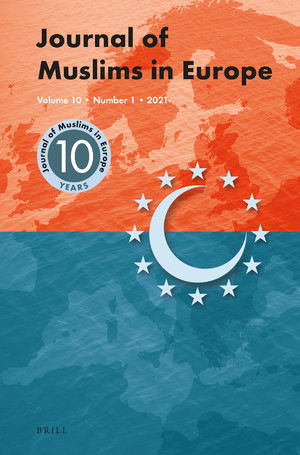
Murat Akan (IEA Paris, Boğaziçi University, Istanbul) a publié un article qui s’intitule “Floating Sophia, Polarizing to Abeyance, Waqf-izing the State” dans le Journal of Muslims in Europe volume 10 n° 1. Il concerne la récente transformation en mosquée d’Ayasofya. L’édifice qui fut successivement une basilique, une mosquée, puis un musée (sur décision d’Atatürk) a été l’objet de batailles juridiques et politiques illustrant la “waqf-isation de l’État turc”
Résumé :
The 2020 ‘mosque-ing’ of Ayasofya (Hagia Sophia) shook a cornerstone of the Turkish Republican tradition. I lay out the immediate political context, including the COVID-19 pandemic, the content of five court decisions that built up to the mosque-ing, and what these show about the current state of secularism, democracy and institutions in Turkey. I argue that the Ayasofya episode is a case of polarization to the point of abeyance and waqf-izing the Turkish state. Evaluating the episode in light of the past decade of Turkish politics, I propose that it is the present stage of a trajectory from the politics of modernity to the anti-politics of abeyance, and that the midpoint of this trajectory is the politics of ‘multiple modernities’. It is time to lay to rest the wave of conservative epistemologies emerging from Shmuel Eisenstadt’s ‘multiple modernities’.
Mots-clés :
Turquie – Sécularité – populisme – dé-démocratisation – Sainte Sophie – moderintés multiples – désuétude
Turkey – secularism – populism – de-democratization – Hagia Sophia – multiple modernities – abeyance
L’article est disponible, en anglais, à cette adresse : https://brill.com/view/journals/jome/aop/article-10.1163-22117954-BJA10026/article-10.1163-22117954-BJA10026.xml



